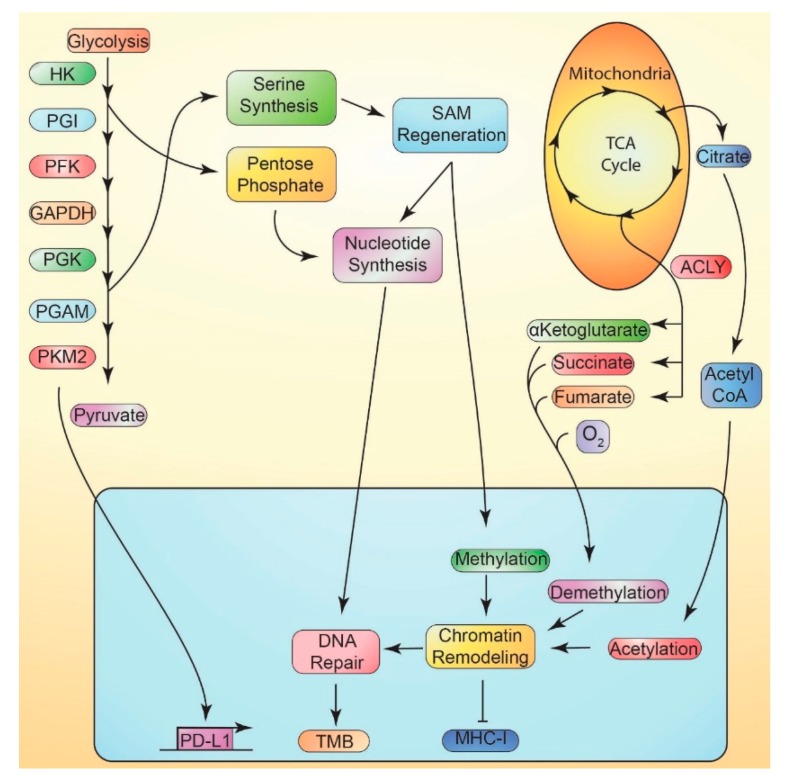Figure 4.
Tumor cell-intrinsic metabolic regulation of immune escape. High rates of glycolysis in tumor cells, enabled by increased expression of PKM2 (pyryvate kinase muscle 2), supply intermediates required for serine biosynthesis and pentose phosphate metabolism. PKM2 can directly promote the expression of PD-L1 (programmed death ligand 1) independent of its regulation of glycolytic metabolism. Pentose phosphate metabolism (PPP) is required for nucleotide biosynthesis. Serine biosynthesis readily supplies carbon for the regeneration of S-adenosyl methionine (SAM), which is required for both nucleotide biosynthesis and chromatin remodeling via methylation. Nucleotide biosynthesis supplies required nucleotides for DNA repair following damage. Tricarboxylic acid cycle metabolic intermediates also regulate chromatin remodeling. Citrate, exported to the cytoplasm, supplies substantial amounts of acetyl CoA via ATP citrate lyase (ACLY), required for acetylation. Alpha-ketoglutarate, succinate, fumarate, and oxygen regulate a range of demethylation reactions, either as substrates or as inhibitors. Chromatin remodeling is essential to efficient DNA repair, failure of which drives an increase in TMB. Further, MHC-I (major histocompatibility complex class I ) is epigenetically suppressed by many cancer cells.

